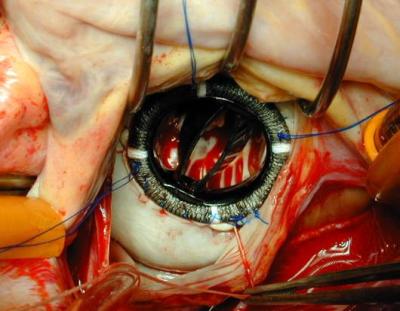Valves Replacement
Valve operations take more and more representation in the range of cardiac surgery operations. There are more reasons for it. They include the higher experience of cardiac surgery facilities which are able to safely operate on even advanced defects which were not operated on before. As the population is getting older, many patients live to the degenerative changes on the valve and they undergo the operation. Better results also make it possible to operate on less symptomatic patients. The short-term and the long-term effect of the operation is usually the best for them.
Types of valves:
Biological valves
They are usually made of swine or bovine material. Due to their limited life, they were recommended to patients over 65 years of age. In recent years, thanks to the improvement of the production technology, the implantation of biological valves has moved to younger age groups (60 – 65 years old).
The advantage of biological valves is their easy implantation and, above all, that the permanent anti-coagulation is not necessary. The risk of infection remains the same as in the case of mechanical valves. Hemodynamic properties depend on the type of valve and they range from average to excellent.

Mechanical valves
They are generally used for patients younger than 65 years. The advantages of mechanical valves include, in fact, unlimited mechanical durability and easy implantation. The disadvantage is the necessity to use anti-coagulation (Warfarin) for the rest of life, the risk of thromboembolic events, the risk of infection (artificial material in the blood flow) and average hemodynamic properties.

